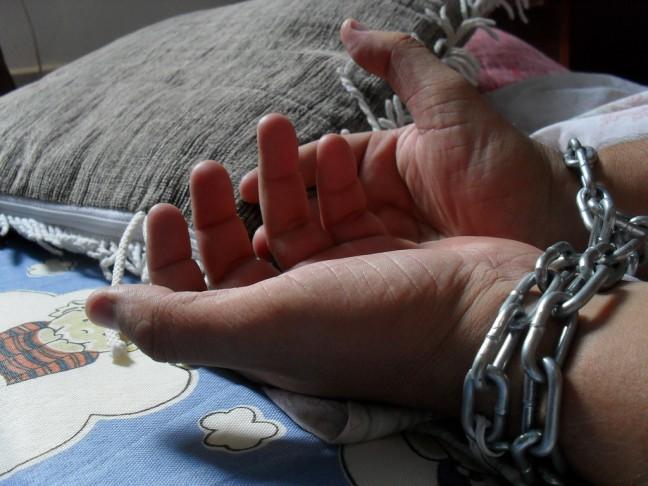Pimps can make upwards of $600,000 if they take only four children – usually age 12 or 13 on average – and use them for sex trafficking, according to a Republican lawmaker who introduced a bill to combat the increasing statewide issue.
Rep. Janel Brandtjen, R-Menomonee Falls, introduced a bill to help better report and respond to the problem, according to a statement released Sept. 15.
“[The pimps] take advantage of their age, they take advantage of their frailty,” Brandtjen said. “They promise them a better life, better things. These are children, and they’re unable to make decisions [on their own].”
The bill makes three main changes to human trafficking laws, according to the release.
It first requires children’s protection agencies to report any suspected child abuse or human trafficking to law enforcement within 12 hours of the reported abuse or neglect.
Second, the release stated the bill would expand the mandatory reporting law to include probation and parole agents, as well as certain school employees who work directly with children.
Finally, the bill defines child abuse as exposure to all drugs, not just methamphetamines.
She proposed the bill to address a growing issue. A big statewide problem, Brandtjen said, seeing as Milwaukee is the human trafficking capital of the Midwest.
The Department of Justice and Department of Children and Families also recently developed a Human Trafficking Task Force, according to a joint release published Sept. 15.
Jill Karofsky, DOJ’s Office of Crime Victim Service executive director, said the task force’s goal is to develop, implement and sustain a statewide coordinated response to sex trafficking.
Karofsky said the task force has a variety of goals, including implementing uniformed training materials to be used throughout the state, creating more public awareness materials with consistent messaging and collecting more data on sex trafficking survivors.
Department of Children and Families Secretary Eloise Anderson said she believes the task force will help the state create a cohesive plan or response.
“This task force will help Wisconsin create a comprehensive and coordinated response to human trafficking,” Anderson said. “We believe it will be an effective tool in helping us gain a better understanding of the problem and create a system of services best equipped to help the victims cope with the trauma they have suffered, heal and avoid being re-victimized.”
Karofsky said Attorney General Brad Schimel and Anderson both recognized a need for a statewide collaboration on this issue, but in terms of how many people are affected by sex trafficking in the state, she said the number is difficult to quantify because so many cases go unreported.
According to the release, Department of Children and Families and DOJ hope to have a fully staffed and operational task force by the end of 2015. Brandtjen said she commends the work Schimel and Anderson are doing with the task force.
Joann Gruber-Hagen, chair of SlaveFree Madison, a coalition that raises awareness about local and global human trafficking, said she appreciates the way Brandtjen’s bill’s expands on child trafficking laws.
A lot of current legislation, she said, is not victim-centered and not expansive on who must report suspicions of child abuse.
Gruber-Hagen also said she likes that the bill requires all school employees who directly deal with children to report suspicions of child abuse, instead of just specific teachers or nurses.
Gruber-Hagen said she would like to have labor trafficking included in the definition of child abuse instead of just sex trafficking, as well as more plans on how to help survivors of human trafficking.
“We do not have a good answer yet in Wisconsin for what kind of services and support these children will accept and respond to,” Gruber-Hagen said. “There needs to be a lot of work on that.”


